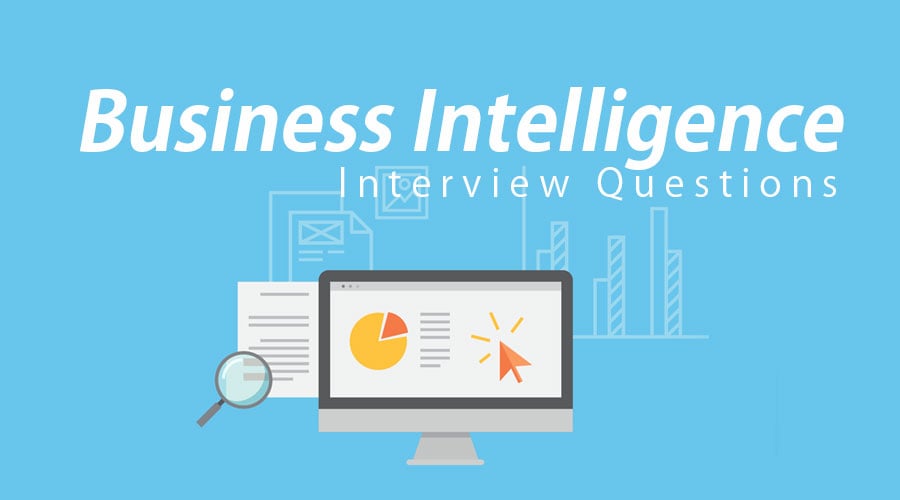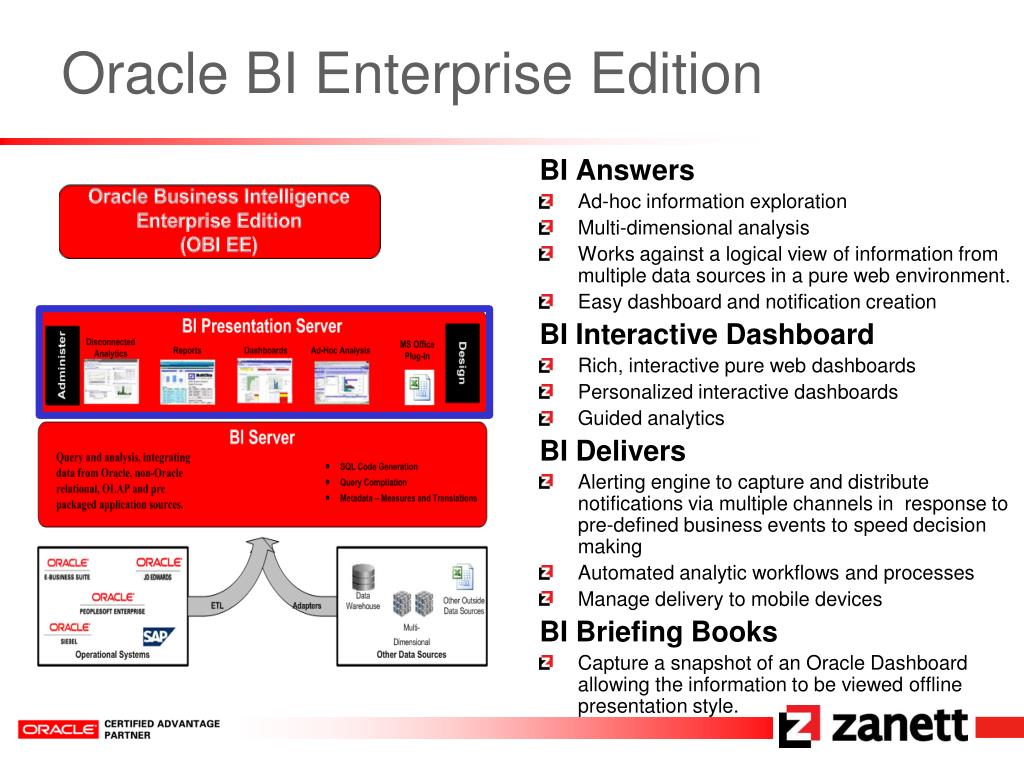
#Oracle business intelligence definition software
Prescriptive analytics enable optimization, simulation, decision modeling and provide the best possible analysis for business decisions and actions.īI software gathers sales, production, financial and many other business data sources. These analytics reveal why you should take a particular action. These advanced analytics use data mining, predictive modeling, and machine learning to help make projections of future events and assess the likelihood that something will happen. When managed well, you’ll have a better understanding of problem areas in your business and can find opportunities to improve. These analytics reveal what has happened or is happening and are part of dashboards, business reporting, data warehousing and scorecards. BI systems drive decisions based on historical, current and potential future data. BI transforms pools of raw data into useful information that informs decisions and leads to actions that yield positive bottom-line impact. What Is the Value of Business Intelligence?īusiness intelligence's highest value is its ability to support data-driven decisions. In a genuinely data-driven company, every department and employee can take advantage of BI-generated insights. Business intelligence can also ensure that service level agreements are met and help improve distribution routes. To save time and resources, managers can access and analyze data like supply chain metrics to find ways to optimize processes. Sales managers monitor revenue targets, sales rep performance along with the status of the sales pipeline using dashboards with reports and data visualizations. Sales data analysts and operation managers often use BI dashboards and key performance indicators (KPIs) for quick access to complex information like discount analysis, customer profitability and customer lifetime value. This data gives marketing teams more visibility into overall performance and provides contextual visuals for sharing with the company. BI systems can provide real-time campaign tracking, measure each effort’s performance and plan for future campaigns. Here are examples of how various teams and departments use business intelligence.Īnalysts are BI power users, and they use centralized company data paired with powerful analytics tools to understand where opportunities for improvement exist and what strategic recommendations to propose to company leadership.īy blending financial data with operations, marketing and sales data, users can pull insights from which decisions can be acted upon and understand factors that impact profit and loss.īusiness intelligence tools help marketers track campaign metrics from a central digital space. Tasks include quantitative analysis, measuring performance against business goals, gleaning customer insights and sharing data to identify new opportunities.

Sales, marketing, finance and operations departments use business intelligence. BI-based, data-driven decision-making helps companies stay relevant and competitive.The most successful companies use BI to make sense of ever-increasing amounts of data in a fast and economical way.Business intelligence offers a wide variety of tools and techniques to support reliable and accurate decision-making.Many BI systems use artificial intelligence (AI) and other capabilities as a part of business analytics. This vast amount of data, or "big data," has made business intelligence systems relevant for companies that want to harness its power for a competitive advantage. German market research firm Statista estimates the volume of data created worldwide by 2024 will be 149 zettabytes. A user interface (usually an interactive dashboard with data visualization reporting tools) provides quick access the information.Business performance management (BPM) tools monitor and analyze progress towards business goals.Business analytics or data management tools mine and analyze data in the data warehouse.A data warehouse stores company information from a variety of sources in a centralized and accessible location.

BI includes multiple tools and techniques to transform raw data into meaningful and actionable information. What Is Business Intelligence (BI)?īusiness intelligence refers to the technology that enables businesses to organize, analyze and contextualize business data from around the company.


Plus, we share examples of how some of the most tech savvy companies are using BI. We explain how implementing BI software can give companies of any size a competitive edge. Middle East, Nordics and Other Regions (opens in new tab)īusiness intelligence (BI) provides data that helps companies make timely and informed decisions.United States / Canada (opens in new tab).Advertising & Digital Marketing Agencies.Advertising and Digital Marketing Agencies.


 0 kommentar(er)
0 kommentar(er)
